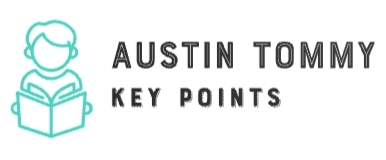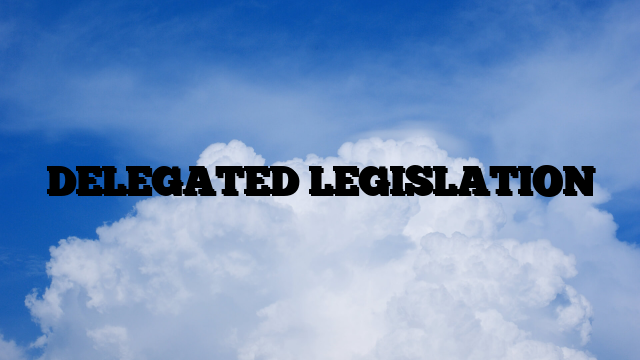
MILLENNIUM DEVELOPMENT GOALS
MEANING OF MDG
The Millennium Development Goals (MDG) are eight international development goals that were officially established following the millennium summit of the United Nations in 2000, following the adoption of the United Nations millennium declaration. All 193 United Nations member states and at least 23 international organisations have agreed to achieve these goals by the year 2015.
GOALS OF MDG
- Eradicating extreme poverty and hunger.
- Achieving universal primary education.
- Promoting gender equality and empowering women.
- Reducing child mortality rates.
- Improving maternal health.
- Combating HIV/AIDS, malaria and other diseases.
- Ensuring environmental sustainability.
- Developing a global partnership for development.
Note the following:
Each of the goals has specific stated targets and dates for achieving those targets.
To accelerate progress, the G8- the Group of 8 industrialised countries:
- The Russian federation.
- Germany.
- France.
- Italy.
- United Kingdom.
- Northern Ireland.
- United State of America.
- Japan.
These countries finance ministers agreed in June 2005 to.provide enough Funds to the World Bank, the International Monetary Fund (IMF), and the Africa Development Bank (AFDB) to cancel an additional $40 to $55 billion in debt owed by members of the Heavily Indebted Poor Countries (HIPC) to allow impoverished countries to re-channel the resources saved from the forgiven debt to social programmes for improving health and education and for alleviating poverty.
OBJECTIVES OF MDG.
- Eradicate extreme poverty and hunger between 1990 and 2015, the proportion of people whose income is less than one dollar a day. Secondly, that between 1990 and 2015, the proportion of people who suffer from hunger.
- Achieve universal primary education and to ensure that by 2015, children everywhere, boys and girls alike, will be able to complete a full course of primary schooling.
- Promote gender equality and empower women. Eliminate gender disparity in primary and secondary education, preferably by 2005 and to all levels of education not later than 2015.
- Reduce child mortality rate. Reduce by two-thirds, between 1990 and 2015 the under-five mortality rate.
- Improve maternal health. To reduce by three quarters between 1990 and 2015, the maternal mortality rate.
- Combat HIV/AIDS malaria and other diseases. Halve halted by 2015 and begun to reserve the spread of HIV/AIDS. Again halve halted by 2015 and begun to reverse the incidence of malaria and other major diseases.
- Ensure environmental sustainability to integrate the principle of sustainable development into countries policies, programmes and reverse the loss of environmental resources. By 2015, halve the proportion of people without sustainable access to safe drinking water. Also by 2020 to have achieved a significant improvement in the lives of at least 100 million slum dwellers.
- Develop a global partnership for development. To deal comprehensively with the debt problems of developing countries through national and international measures in order to make debt sustainable in the long term. Secondly, in cooperation with the private sector, make available the benefits of new technologies, especially in formation and communications.
MEANING OF NATIONAL ECONOMIC EMPOWERMENT AND DEVELOPMENT STRATEGIES (NEEDS)
The bedrock of NEEDS is its vision of a Nigeria with a new set of values and principles, which will facilitate the achievements of national goals of wealth creation, employment generation and poverty reduction.
NEEDS has fashioned a reform agenda with emphasis on strengthening the macroeconomic environment and strengthening the growth agents within the system.
The specific reform programmes in NEEDS include Government and Institutional reforms which entail:
- Public Sector reforms.
- Privatization and liberalization.
- Governance.
- Transparency and anti-corruption.
- Service delivery by government agencies.
NEEDS also specifies private sector reforms which will address issues such as security and rule of law; infrastructure; finance; sectorial strategies; privatization and liberalization; trade and regional integration.
It also entails a human Development Agenda or Social Charter, which will focus on health, education, integrated rural development, Housing development and youth development, safety nets, as well as geopolitical balance.
Finally, NEEDS specifies its financial and plan implementation strategies. Of-course, whatever funds are spent on this programme would be money well spent. Though, NEEDS is a medium-term economic reform programme, its, formulation has been made consistent with both short-term realities and long-term imperatives that derive from the country’s long term goals of poverty reduction, wealth creation, employment generation, and value reorientation.
The Federal Government under NEEDS and the state government under the state Economic Empowerment and Development Strategy (SEEDS) will co-ordinate a planning framework with agreed common priorities in agriculture, public finance and public sector reforms, with emphasis on the social sector.
OBJECTIVES OF NEEDS
The objectives are mainly threefold:
- Poverty Reduction
- Employment Generation.
- Wealth Creation.
Immediate Goals of NEEDS
- To redefine the role of government in the economy, by de-emphasizing the participation of government in the running of business.
- This is in line with the global view that government has no business running business.
- It is the responsibility of government to create an enabling or conducive environment for the private sector to thrive, through legislation, tax regimes and other incentives.
- There existed some elements of coherence between Federal and State reforms, for the first time, in a very long time. This has ensured purposefulness, focus and objectivity.
MEANING AND OBJECTIVES OF VISION 2020
It is stated in the document ‘Vision 20: 2020 Economic Transformation Blueprint (2009) that by the year 2020, Nigeria will have a large, strong, diversified, sustainable and competitive economy that effectively harness the talents and energies of it’s people and responsibly exploits its natural endowments to guarantee a high standard of living and quantity of high standard of living and quantity of life to its citizens.
In order to achieve this, according to the same vision statement, a Gross Domestic Product (GDP) of not less than $900 billion is required.
This translates to a National per capital income of not less than $4000 annually by the year 2020. It is also stated that another implication of the vision 20: 2020 is that Nigeria’s economy must grow at an average rate of 13.8 percent during the period. Another expectation is that by 2020 Nigeria will generate 60,000 megawatts of electricity.
OBJECTIVES OF VISION 2020
The objectives of vision 20: 2020 have social, economic, institutional and environmental dimensions.
- The social dimension: Envisions an equal society that can sustain a life expectancy of at least 70 years.
- The Economic dimension: Envisages a vibrant economy, where manufacturing sector can contribute at least 25 percent to Gross Domestic Production (GDP)
- The institutional dimension: Expects a stable democracy.
- The environmental dimension: Envisions effective management of our natural environments.
It is pretty clear, from the objectives, that the vision 20: 2020 is a grandiose adventure.
The seven Point Agenda: The Seven Point Agenda encompasses the following areas:
- Power and Energy.
- Food security and agriculture.
- Wealth creation and employment.
- Mass transportation.
- Land reform.
- Security.
- Qualitative and functional education.
- Power and energy: It is already stated that for the vision 20: 2020 to be achieved the target is 60,000 M.W.
- Food security and agriculture: The Seven Point Agenda expects a “5-10 fold increase in yield and production”, which would result “in massive domestic and commercial outputs and technological knowledge transfer to farmers”.
- Wealth creation and employment: As regards wealth creation, Nigeria’s economy is still fully dependent on crude petroleum exports. Abject poverty stares over 70 percent of Nigerians in the face. Nigeria is still ranked among the poorest countries in the world. On employment, one can observe some efforts of government and organisations here and there ready to help the teeming unemployed and unemployable youths in Nigeria to acquire some skills and become useful to themselves and society.
- Mass transportation: Most Nigerian roads are in a very bad state of repair reality. Rail transportation is still virtually in the pipeline. Government should steer up efforts to achieve a sustainable mass transportation as one of its objectives for vision 20: 2020.
- Land reform: The land reform issue is still at the discussion stage and the question is can the next four years or so see anything concrete in land reform?
- Security: With each day that passes in Nigeria, in-security of lives and property increases. There are the religious and tribal conflicts which usually leave hundreds of people dead and hundreds of others maimed. We also have the Boko Haram onslaught on the nation. Crimes such as armed robberies, kidnappings, judicial murder, ritual killings, corruption, are increasing at an alarming rate. Governments have much to do on this issue of insecurity in the country.
- Qualitative and functional education: In the 1960s, 1970s and early 1980s education in Nigeria was at its best level. Even primary, secondary school and teacher training graduates were persons who contributed to the development of the society. They effectively manned the schools, government offices, company and industrial positions. Of-course, university graduates were very skilled persons who attracted respect all over the world. However, from the late 1980s, rapid educational decline set in as “a result of bad political, economic and national development policies”. Today, things have not really changed for better. Governments at all levels in the country should focus on vision 20: 2020 and come up with a policy that will enhance a qualitative and functional education at all levels – primary, secondary, university, etc ,. so, that it will be a dream come true.

Don Steve is an education enthusiast and blogger passionate about making learning accessible, engaging, and impactful. With a focus on practical strategies, academic insights, and personal growth, he shares resources that empower students, educators, and lifelong learners to thrive in and beyond the classroom.







